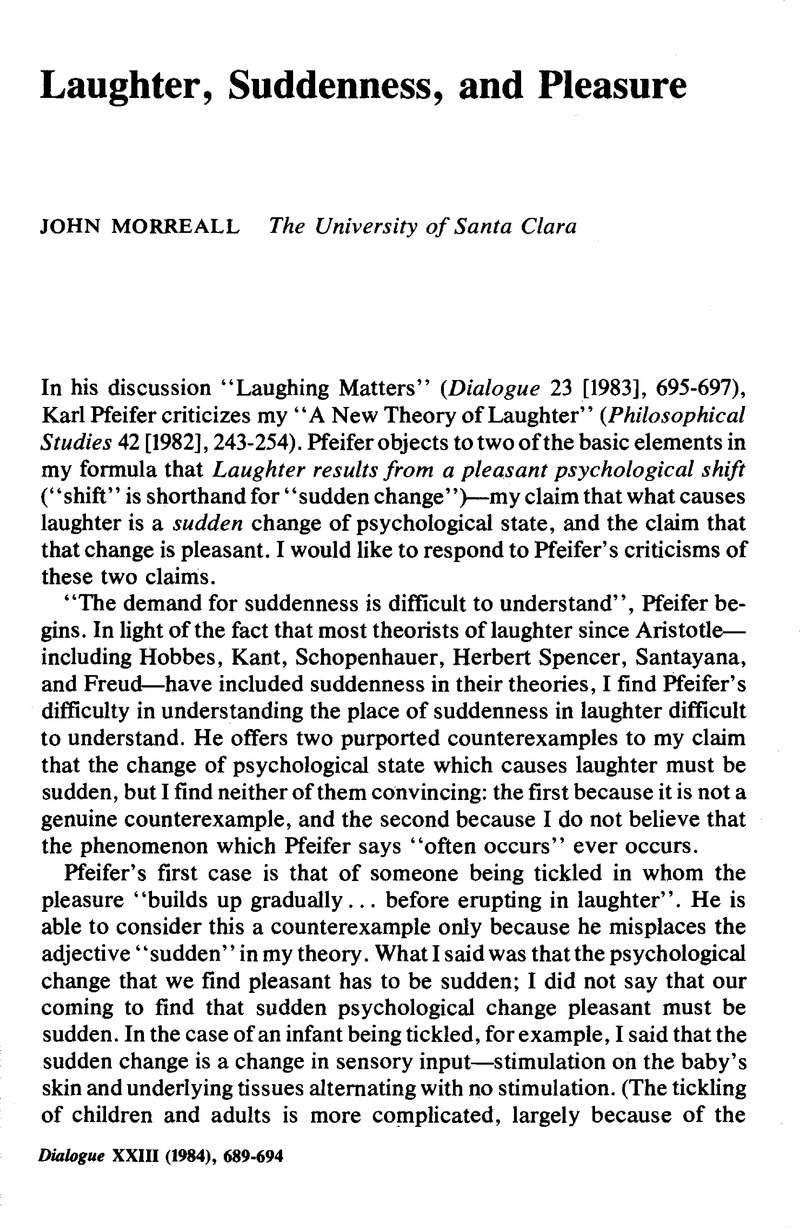Article contents
Laughter, Suddenness, and Pleasure
Published online by Cambridge University Press: 05 May 2010
Abstract

- Type
- Interventions
- Information
- Dialogue: Canadian Philosophical Review / Revue canadienne de philosophie , Volume 23 , Issue 4 , December 1984 , pp. 689 - 694
- Copyright
- Copyright © Canadian Philosophical Association 1984
References
1 Here there is an important disanalogy between jokes and works of art, usually overlooked by those (such as Ted Cohen) who argue for the similarity between the two. We can experience a great painting or symphony with full appreciation many times, perhaps enjoying it more each time. But we seldom laugh the second or third time we hear ajoke (except out of politeness), because amusement depends on our being caught offguard in some way. Peter Jones makes a similar point in discussing amusement in light of Hume's, remarks on taste, in “Laughter”, Proceedings of the Aristotelian Society Supplementary Volume 56 (1982), 220–221Google Scholar. This is not to deny that we can appreciate ajoke on repeated telling in other ways than by laughing in amusement. We may admire its cleverness, perhaps, or enjoy the amusement it causes in other people.
2 The animal world provides many more examples of feigning without intention. When a female plover sees a fox approaching her eggs, for instance, she may distract the fox with the “broken wing trick”—she scurries around on the ground as if she had a broken wing, thus appearing to be easy prey.
3 Morreall, John, Taking Laughter Seriously (Albany, NY: State University of New York Press, 1983)Google Scholar. See also Pfeifer's review of this book in The Journal of Mind and Behavior 5/1 (1984), 115–118Google Scholar.
4 Leacock, Stephen, Humor and Humanity (New York: Henry Holt, 1938), 219–220Google Scholar.
- 1
- Cited by


